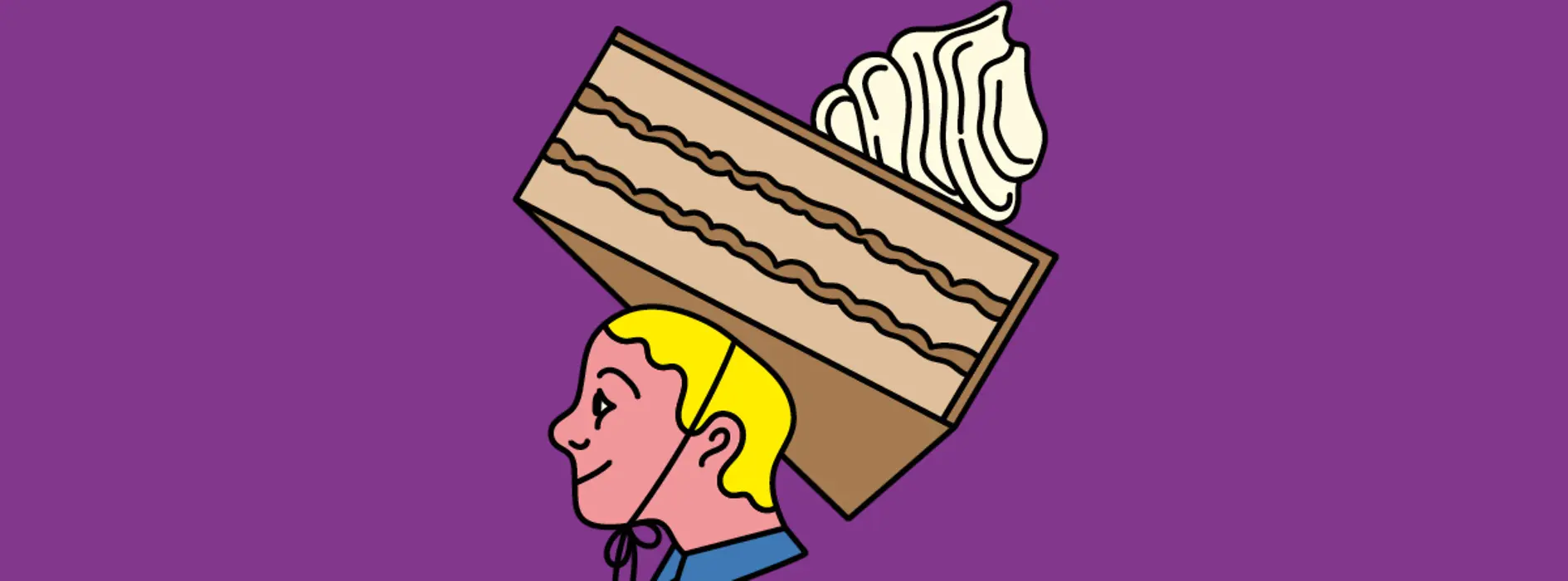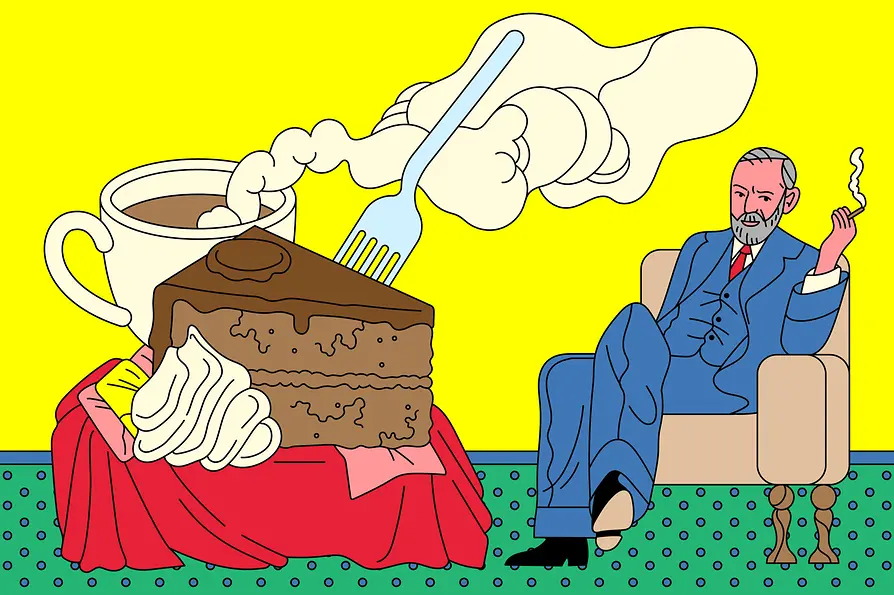Vienna? Multiple personalities
„Isolation guarantees Provincialism“
Vienna has a personality disorder. Yet, this turns out to be a positive diagnosis if you put the city of Sigmund Freud on the couch for analysis – according to Matti Bunzl who is the Director of the Wien Museum. While he’s not a psychiatrist, he knows the city inside out and is a typical Viennese.
How would you describe Vienna if it were a person?
If I had to describe this city as a character, it would basically be a multiple personality with a disorder. This person would be a little schizophrenic, but that‘s also great. There are multiple Viennas all at the same time. I can live in a Vienna that’s a global avant-garde art Vienna, or a Vienna of traditional Trachten costume associations, or a Vienna of refined craftsmanship. All of which exists in parallel.
Couldn’t we say the same about all cities, though?
Well, it only applies to big cities that are truly diverse and allow this simultaneity. And I haven’t even touched on the different ethnicities yet. Of course, there’s also a Turkish Vienna, for example.
What neuroses does Vienna have?
There’s certainly a fundamental historical trauma. Vienna in all its splendor and grandeur was the capital of a huge empire. Now it’s the capital of a moderately significant state.
And you think that still has an impact?
For me, it explains things like this excessive nostalgia for the Habsburgs. But shocks like that aren’t always bad.
After all, tourism thrives on the city’s imperial backdrop. Does that have unwanted side effects?
I’d be inclined to say that it’s harmless. It has a fundamentally folkloresque dimension to it – which is a bit ironic considering that the Austrian Republic unceremoniously kicked out the imperial family to go on and do a lot of business off the back of it.
Is Vienna charming?
No, Vienna just acts like it’s charming. Those little gestures here like “kiss the hand” have little behind them. I find Vienna full of little flourishes that are actually empty. The obsession with titles, for instance, I find absurd. For me, what makes Vienna special is this genuine quality of life, that you can live and eat really well here, even if you’re not rich, and have access to an incredible range of leisure activities, parks, and nature. That’s the Vienna that excites me.
Do you find Viennese humor funny?
No, I don’t. When that inimitable Viennese humor (Schmäh) starts to “run” as they say, crude jokes follow. I prefer subtle, deeper humor where criticism is precise and cynical. That appeals to me more.
Do Viennese people have a realistic view of their city?
As someone who has lived abroad for a long time, I feel that many Viennese people just don’t really have the ability to understand how well Vienna functions in the absence of an external perspective like this. There’s a lot that we just take for granted, such as the excellent public transportation. But at the same time, I’ve also learned those Viennese ways, and it drives me crazy if the tram is five minutes late.
So is moaning also Viennese?
It’s astonishing that there is so much complaining in a city where objectively we really do have it so good. It can get a bit whiny, but somehow that’s also endearing. So this cliché is true to a certain extent. And all the stuff about coziness isn’t entirely wrong either. Perhaps it can also be explained by the various cultural influences that have shaped Vienna immensely.
Does this set Vienna apart from other big cities?
London, Paris and Berlin also underwent huge growth in the late nineteenth century due to industrialization. But Vienna’s urbanization was much more multicultural. People came to the city from all over the empire. And this diversity is deeply embedded in the city’s DNA.
Even despite the great ruptures of wars, fascism, and the nation’s transformation into a small state bordering the Iron Curtain after 1945?
Vienna is still a city with an unparalleled cultural density and diversity. It’s also the city with the most people living in social housing or rent-controlled apartments. This structural advantage can be traced back to the social democratic “Red Vienna”. That does something to a city. While we do have a problem with housing costs and rents, it’s definitely significantly less pronounced than it is in comparable cities.
At the same time, political notions of isolationism are gaining traction. Do institutions like the Wien Museum also serve to negotiate ideas for the future?
The implications of historical knowledge for the present day as well as the future are incredibly compelling. Being part of it and negotiating it together is our goal. We want to portray Vienna’s history simply as it is. And if Vienna had isolated itself in the past, it would be a backwater today. Isolation guarantees provincialism But that wouldn’t be possible in a globally networked city anyway. What does isolation even mean? No more immigration, a shrinking population? Where would that take us?
So, Vienna needs growth?
My hope is for well-organized, gentle growth. In my view, we don’t need to suddenly take off and become a megacity like Tokyo.
What role has tourism played in Vienna’s growth?
A very important one. The first attempt to institutionalize tourism in Vienna was for the 1873 World’s Fair. That’s when the big hotels were built. But only seven million out of the expected 20 million visitors actually turned up – it was a fiasco, of course. And another attempt to organize tourism came around the turn of the century. But it collapsed with Nazism and recovered only very slowly. A boom started in the late 1960s, and the 1970s in particular. Tourism as we know it today stems from the 1980s, when there were major exhibitions dedicated to turn-of-the-century Vienna, which went on to be shown in Paris and New York, too.
Doesn’t growth also have something negative to it for many people?
I love a vibrant city where there are many different people from lots of different countries. But at the same time, I understand the fears that Vienna is changing a lot and new population groups are coming. Do I love fighting my way through the crowds on Kärntner Strasse? Not massively, no. But it’s also a sign that we are an attractive city – and draw people in, especially from the European Union. In 1987, Vienna had a population of 1.5 million; today it’s up to 2 million. That’s a lot of dynamism, and that produces vitality. In terms of the age of the population, we are the youngest province in Austria.
Have more tourists visited your museum since the Wien Museum reopened?
We are the museum of the Viennese. Still, I’m delighted about the tourists. And yes, there are more of them. For me, it’s clear which visitors we attract: it’s not the ones that are “doing Europe” in 10 days. It’s the ones who have discovered Vienna for themselves, are eager to return, and really want to explore and experience the essence – not just the facade.
Sigmund Freud even believed that “everything that furthers the development of culture also works against war.”
Well, he also said a lot of other things. It all depends on your definition of culture. For me, Sigmund Freud’s sociological diagnoses are comparable to Thomas Bernhard’s. They’re clever, but as a professional historian, you don’t want to hang on their every word. It’s more that you read them for fun.
Is Vienna provincial?
No, Austria has something provincial about it, but not Vienna. Vienna is among the five largest cities in the EU.
Yet, there’s something slightly remote in Austrians.
Many people act with this incredible humbleness and can also have this fake-friendly thing going on, too. I have a lot of friends who visit Vienna, and they always say that there’s hardly a more beautiful city to be a tourist in because it’s wonderful here. What’s not to love?
Do you have a dream for the Vienna of the future?
Other cities are much more aggressive about combating traffic. Paris, not to mention Copenhagen. So there’s plenty more that can be done on that front. I think everyone realizes that we need to get there too. But it’s not easy. Everything’s very complex politically. I dream of even better public transport. I dream of a free park and ride system outside the city. I dream of a fully traffic-calmed first district. And of a completely car-free Ringstrasse: how cool would that be? I mean, it would be a dream.
Interview: Stefan Müller, Freshwords
About the person
Matti Bunzl, Director, Wien Museum. Historian and cultural anthropologist. Born in Vienna in 1971, he studied in the USA, taught at the University of Illinois from 1998 to 2014, before taking over as artistic and scientific director of the Wien Museum in 2015. Since its renovation and official reopening in December 2023, visitor numbers at the museum have skyrocketed.


